On November 14, 2008, the XII National Assembly of the Socialist Republic of Vietnam, during its 4th session, passed the Law on Excise Tax. On November 28, 2008, the President signed Order No. 25/2008/L-CTN to promulgate this Law.
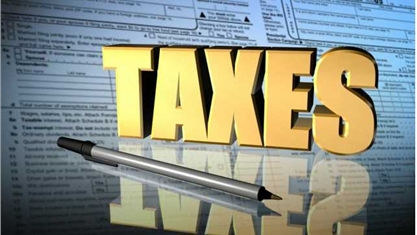
The Law on Excise Tax this time replaces the Law on Excise Tax 1998, the Law amending and supplementing several articles of the Law on Excise Tax 2003, and the Law amending and supplementing several articles of the Law on Excise Tax and the Law on Value Added Tax 2005. The Law on Excise Tax consists of 4 chapters, 11 articles. To be specific:
1. Chapter I. General Provisions, including 4 articles (from Article 1 to Article 4): stipulates the scope of regulation, subjects of tax, non-taxable subjects, and taxpayers.
Compared to the current Law, the Law on Excise Tax this time has several new points as follows: This Law includes cars under 24 seats used for both passenger and cargo transport as subjects of special consumption tax. The current law stipulates that passenger cars under 24 seats are subject to special consumption tax. In reality, there are types of cars under 24 seats that are dual-use for both passenger and cargo transport, mainly serving personal consumption needs (such as VAN cars, pick-up trucks with more than two rows of seats). To meet the objectives of special consumption tax and ensure the comprehensiveness of the Law, this Law has included these types of vehicles as subjects of special consumption tax.
This Law also includes "other preparations from the tobacco plant" as subjects of special consumption tax. The current law includes cigarettes and cigars as subjects of special consumption tax. Nowadays, besides cigarettes and cigars, there are other preparations from the tobacco plant (used for chewing, sniffing) on the market. Hence, this Law has added these preparations to ensure the full coverage of tobacco products under special consumption tax.
The Law adds motorcycles with a cylinder capacity over 125 cubic centimeters (cc) as subjects of special consumption tax. Surveys and assessments show that motorcycles with cylinder capacities over 125 cc are primarily scooters with high value, mainly used in large cities, by high-income individuals. Including this type of vehicle in the special consumption tax category does not affect users of motorcycles for agricultural purposes and labor. Therefore, the Law includes motorcycles with cylinder capacities over 125 cc to direct consumption, encourage efficient energy use, save fuel, and reduce environmental pollution.
This Law includes airplanes and yachts (except for those used for business purposes of transporting goods, passengers, and tourists) as subjects of special consumption tax. High-end goods like airplanes and yachts have appeared in Vietnam recently, serving high-income groups. With economic development, some high-income individuals can afford airplanes and yachts for private use. Therefore, this Law includes airplanes and yachts not used for business purposes as subjects of special consumption tax.
This Law replaces the phrase "Jackpot game machine" with "Electronic prize game". The current law stipulates that jackpot games are subject to special consumption tax, being a specific type of machine. In reality, other electronic machines (such as slot machines) are also used for prize-winning electronic games, similar to jackpot games. Therefore, this Law replaces "Jackpot game machine" with "Electronic prize game" to ensure comprehensive coverage.
Subjects not subject to special consumption tax
Compared to the current Law, this Law has several new provisions as follows:
- It stipulates that airplanes and yachts used for business purposes of transporting goods, passengers, and tourists are not subject to special consumption tax, aiming to avoid affecting the production and business activities of transport and tourism enterprises.
- It stipulates that ambulances; prison transport vehicles; funeral cars; vehicles designed with seats and standing places for 24 or more people; vehicles used in amusement parks, entertainment areas, sports venues not registered for circulation and not participating in traffic are not subject to special consumption tax.
Currently, there are some types of vehicles under 24 seats used for specific purposes such as ambulances, prison transport vehicles, funeral cars; vehicles designed with seats and standing places for 24 or more people (city and intercity buses, airport shuttle buses). To meet the objectives of special consumption tax on automobiles, this Law includes such vehicles in non-taxable categories.
- It stipulates that goods imported from abroad into the non-tariff zone, goods sold from the domestic market into the non-tariff zone and used only within the non-tariff zone, goods traded within the non-tariff zones, except passenger cars under 24 seats, are not subjects of special consumption tax.
For goods imported into the non-tariff zone, according to current regulations, goods from the non-tariff zone exported abroad, goods imported from abroad into the non-tariff zone and used only within the non-tariff zone, goods traded between non-tariff zones are not subject to indirect taxes like export tax, import tax, and value-added tax. To ensure the consistency of the tax policy system, this Law includes such goods in the non-taxable category. However, passenger cars under 24 seats imported into non-tariff zones but mainly used domestically in Vietnam are still subject to special consumption tax to prevent trade fraud and fit the actual situation.
2. Chapter II. Basis of Tax Calculation, including 3 articles (from Article 5 to Article 7): stipulates the basis of tax calculation, tax calculation prices, and tax rates.
2.1. Basis of tax calculation: The basis for calculating special consumption tax is the taxable price of goods and services subject to tax and the tax rate. The amount of special consumption tax payable equals the taxable price multiplied by the special consumption tax rate.
2.2. Taxable price: Compared to the current Law, this Law has new provisions as follows:
According to the current Law, the taxable price for domestically produced goods is the ex-factory price before special consumption tax; for imported goods is the import tax price plus import tax. The current taxable price for canned beer is deducted from the can's value. For bottled beer, the taxable price is the sale price of the brewery, and practically most breweries apply a bottle deposit policy, so the taxable price for bottled beer does not include the bottle's value.
To achieve the goal of directing consumption for beer and ensuring compliance with WTO commitments to apply one tax rate for beer without significantly reducing budget revenue, this Law stipulates that the taxable price for goods and services is the selling price, service provision price excluding special consumption tax and value-added tax.
The regulation that the taxable price is the selling price of the production facility means that the taxable price for canned and bottled beer includes the can and bottle's value. Moreover, this aligns with international norms, ensuring equality with other packaged goods like alcohol and tobacco.2.3. Tax Rates:
Compared to the current Law, the current special consumption tax Law has new provisions as follows:
a. For alcohol and beer products
- For alcohol products: The current special consumption tax Law stipulates tax rates for alcohol products based on the alcohol content, where alcohol below 20 degrees, fruit wine, herbal wine has a tax rate of 20%; alcohol from 20 degrees to below 40 degrees has a tax rate of 30%; alcohol from 40 degrees and above has a tax rate of 65%. Currently, domestic alcohol producers mainly produce alcohol with an alcohol content below 40 degrees, alcohol with an alcohol content from 20 degrees to below 40 degrees accounts for a large proportion in production volume (95%) and special consumption tax revenue (93.7%). Alcohol with 40 degrees and above accounts for a small proportion in production volume (5%) and special consumption tax revenue (6.3%).
To comply with WTO commitments, the current special consumption tax Law stipulates that the tax rate for alcohol products from 20 degrees and below is 25% (increased by 5% compared to before); alcohol from 20 degrees and above is 45%, applicable from January 1, 2010, to December 31, 2012. After this period, the tax rate for alcohol from 20 degrees and above will be 50% (increased by 5%).
For herbal wine and fruit wine, the Law also applies tax rates based on alcohol content like other types of alcohol to ensure policy transparency and prevent fraud in implementation.
- For beer products: The current Law stipulates that bottled and canned beer have a tax rate of 75%; draught beer, and fresh beer have a tax rate of 40% (in 2006-2007 it was 30%). To ensure compliance with international commitments upon WTO accession, based on the analysis of the actual production and business situation of domestic beer producers, the special consumption tax Law stipulates a tax rate applicable from January 1, 2010, to December 31, 2012, of 45%. From January 1, 2013, the tax rate will be 50% (increased by 5%).
Applying a 50% tax rate on canned beer is equivalent to the current tax rate (75% excluding the can) so it does not affect the production and business of canned beer; for bottled beer, it is beneficial due to the reduced tax rate; for draught beer, increasing the tax rate may pose difficulties in the initial phase, but the impact will not be significant if businesses make improvements, reorganize production, and change the product structure to maintain good production.
Additionally, the special consumption tax Law adjusts the tax rate incrementally (before and after 2013) to minimize impacts on draught beer producers, a traditional product favored by many, and provides time for businesses to reorganize production and change the product structure while ensuring compliance with international commitments.
b. For automobiles
According to the current special consumption tax Law, the tax rates applicable to automobiles are differentiated based on seating capacity. International experience shows that in many countries, apart from using the seating capacity criterion, special consumption tax rates for automobiles are also specified based on engine cylinder capacity. The larger the engine capacity, the higher the vehicle's value and tax rate. This regulation aligns with the objective of the special consumption tax, which is to regulate consumption and contribute to fuel savings and environmental protection, especially in the current situation where global fuel prices are high, and environmental management is a global challenge.
The current tax rate for automobiles with up to 5 seats is 50%, and from 6 to 15 seats is 30%. The actual implementation of these provisions has revealed limitations, as vehicles with 6 to 9 seats are mainly used as personal transportation, but are only subject to a tax rate of 60% compared to vehicles with up to 5 seats. Countries like China, Thailand, Taiwan, etc., classify all passenger vehicles with up to 9 seats in the same group and subject them to a tax rate based on engine capacity. Therefore, the current special consumption tax Law stipulates tax rates for automobiles as follows:
- For automobiles with up to 9 seats, the tax rate is differentiated based on engine cylinder capacity, with the principle that a larger engine capacity will have a higher tax rate, specifically:
+ Cylinder capacity up to 2,000 cc: 45%+ Cylinder capacity over 2,000 cc to 3,000 cc: 50%+ Cylinder capacity over 3,000 cc: 60%
Implementing these tax rates will not affect domestic production of vehicles with up to 5 seats but will be beneficial (reducing from 50% to 45% for vehicles with a cylinder capacity of up to 2,000 cc), as in the structure of domestic production, vehicles with a cylinder capacity over 3,000 cc, subject to an increased tax rate from 50% to 60%, account for a small proportion (about 3% of the number of vehicles produced and consumed subject to special consumption tax). Currently, passenger vehicles with less than 24 seats produced domestically mainly have a cylinder capacity of up to 2,000 cc (accounting for about 60% of the number of vehicles produced and consumed subject to special consumption tax).
Vehicles with 6 to 9 seats will be affected by the above tax rate adjustment as the projected tax rates will increase from 30% to 45%, 50%, and 60% depending on cylinder capacity. However, at present, each automobile manufacturing enterprise produces both vehicles with up to 5 seats and vehicles with 6 to 9 seats, so the production operation will not be significantly affected overall. Additionally, vehicles with 6 to under 9 seats with a capacity over 3,000 cc, which will have the highest tax increase (from 30% to 60%), are currently produced insignificantly domestically, accounting for about 0.8% of domestic production subject to special consumption tax.
Implementing this plan is expected to increase State budget revenue from special consumption tax on automobiles by about VND 700 billion per year, of which revenue from the special consumption tax on domestically produced vehicles will increase by about VND 400 billion per year.
- For vehicles with 10 to under 16 seats, the current tax rate of 30% will be maintained.
- For vehicles with 16 to under 24 seats, the current tax rate of 15% will be maintained.
Maintaining the current tax rates for vehicles with 10 to under 24 seats is appropriate as these vehicle types are mainly used for production, commerce, and services, not for personal purposes. Increasing the special consumption tax rate on these types of vehicles would increase the production costs for the businesses using them. Additionally, it is unnecessary to categorize these vehicles based on engine capacity as the larger the vehicle, the larger the engine capacity; taxing these vehicles in proportion to their engine capacity like personal passenger cars would affect the objective of encouraging the use of public passenger transport vehicles.
- For vans and pick-up trucks with two or more rows of seats, it is proposed to add a separate line in the Special Consumption Tax Schedule with a tax rate of 15% to facilitate implementation and avoid arbitrary application.
- For hybrid vehicles using a combination of gasoline and electric or bio-energy, with gasoline consumption not exceeding 70% of total energy usage, the Law adds a separate line in the Special Consumption Tax Schedule with a tax rate of 70% of the rate applied to similar conventional vehicles.
- For vehicles running entirely on bio-energy, the Law adds a separate line in the Special Consumption Tax Schedule with a tax rate of 50% of the rate applied to similar conventional vehicles.
- For electric vehicles, which are completely powered by clean energy and have not yet appeared on the market. Currently, these vehicles are under research and development, and commercial products are expected to appear soon. These vehicles are costly, and to encourage their production and use, the Law stipulates specific tax rates as follows:
+ Vehicles with up to 9 seats: 25%+ Passenger vehicles with 10 to under 16 seats: 15%+ Passenger vehicles with 16 to under 24 seats: 10%+ Vans and pick-up trucks with two or more rows of seats: 10%
c. For motorcycles with an engine capacity over 125 cc
To guide production and consumption towards motorcycles with an engine capacity over 125 cc, the Law stipulates a tax rate of 20%.
d. For airplanes and yachts
To regulate income and guide consumption towards airplanes and yachts for high-income consumers, the Law stipulates a tax rate of 30% (excluding those used for the business of transporting goods and passengers, and tourists). Countries in the region such as Indonesia have a special consumption tax rate for airplanes of 35%; Thailand, China, and the Philippines have special consumption tax rates for yachts ranging from 10% to 20%.
đ. For nightclub, massage, and karaoke businesses
The current special consumption tax Law stipulates a tax rate of 30% for nightclub, massage, and karaoke businesses. Nightclubs are sensitive service types that can easily be exploited to lead to social evils that need to be restricted. The current Law adjusts the tax rate for nightclub businesses from 30% to 40%; for massage and karaoke businesses, the current tax rate is maintained.
e. For casino, prize-winning electronic games, and betting businesses
The current special consumption tax Law stipulates a tax rate of 25% for casino, prize-winning electronic games, and betting businesses. These are service types that the State does not encourage business and consumption. Therefore, the current Law adjusts the tax rate to 30%.
g. For golf businesses
The current tax rate for golf businesses is 10%. This is a high-class service type attracting players with high incomes in society, so the current Law adjusts the tax rate to 20%.
3. Chapter III. Tax Refund, Tax Deduction, Tax Reduction, Includes 2 Articles (Article 8, Article 9):
Regulations on tax refunds, tax deductions, and tax reductions for special consumption tax.
Among them, it is stipulated that taxpayers producing goods subject to special consumption tax facing difficulties due to natural disasters or unexpected accidents are eligible for tax reduction. The tax reduction rate is determined based on actual losses caused by natural disasters or unexpected accidents but not exceeding 30% of the payable tax of the year the natural disaster occurred and not exceeding the value of damaged assets after compensation (if any).
4. Chapter IV. Implementation Provisions, Includes 2 Articles (Article 10, Article 11):
Regulations on the effective date of implementation and guidance for implementation. This Law takes effect from April 1, 2009; provisions related to alcohol and beer take effect from January 1, 2010.
The provisions in the Special Consumption Tax Law No. 05/1998/QH10; the Law amending and supplementing several articles of the Special Consumption Tax Law No. 08/2003/QH11; Article 1 of the Law amending and supplementing several articles of the Special Consumption Tax Law and the Value Added Tax Law No. 57/2005/QH11 are abolished, except for provisions related to alcohol and beer which continue to be effective until December 31, 2009.
Source: conganbinhthuan.gov.vn
 Article table of contents
Article table of contents

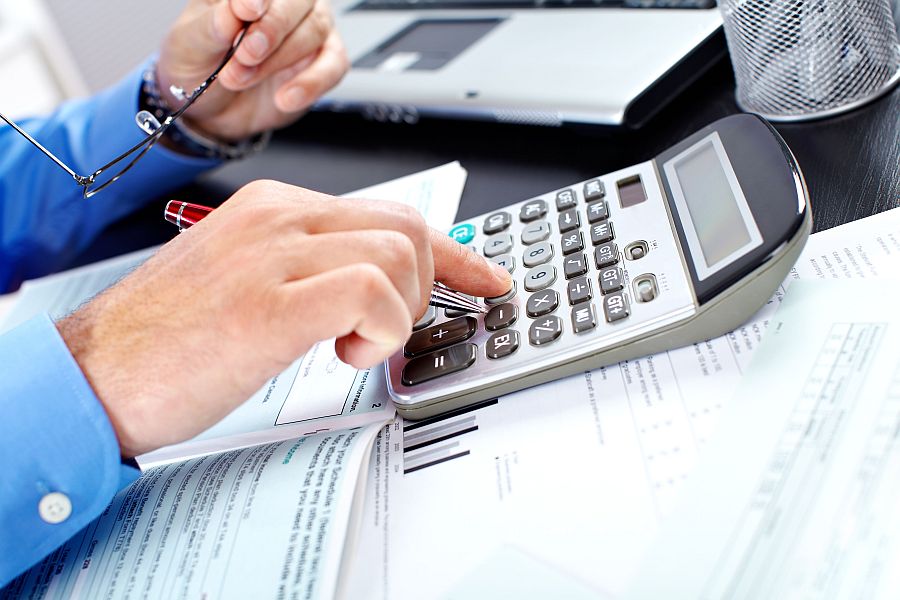
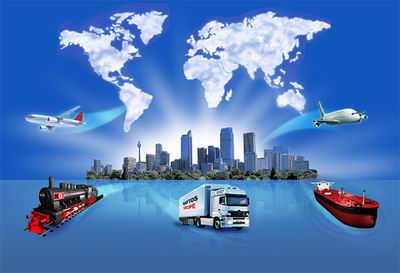
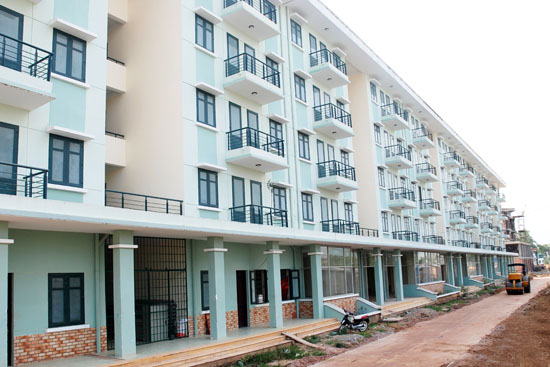
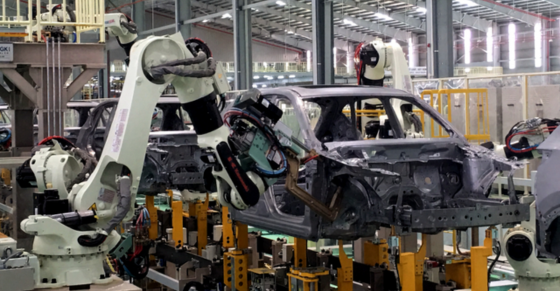
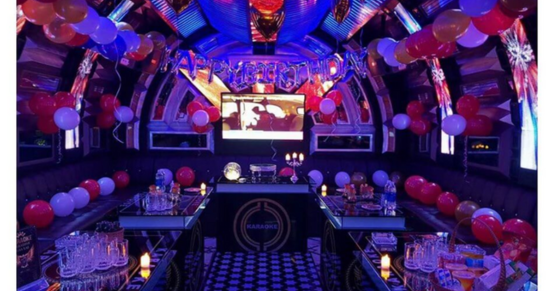
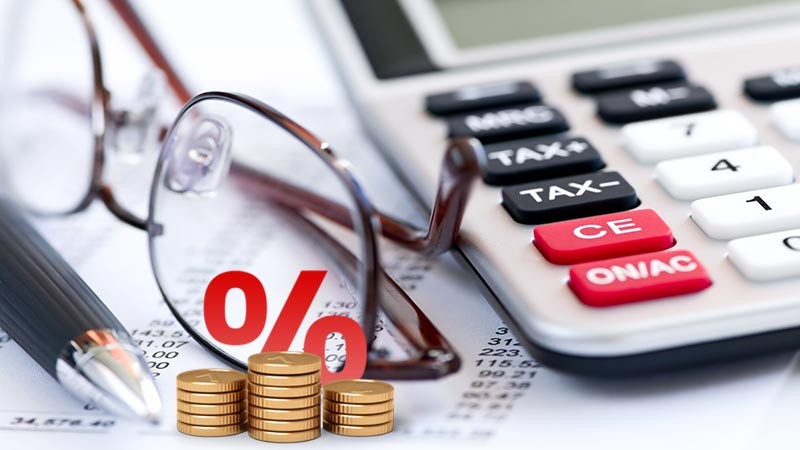
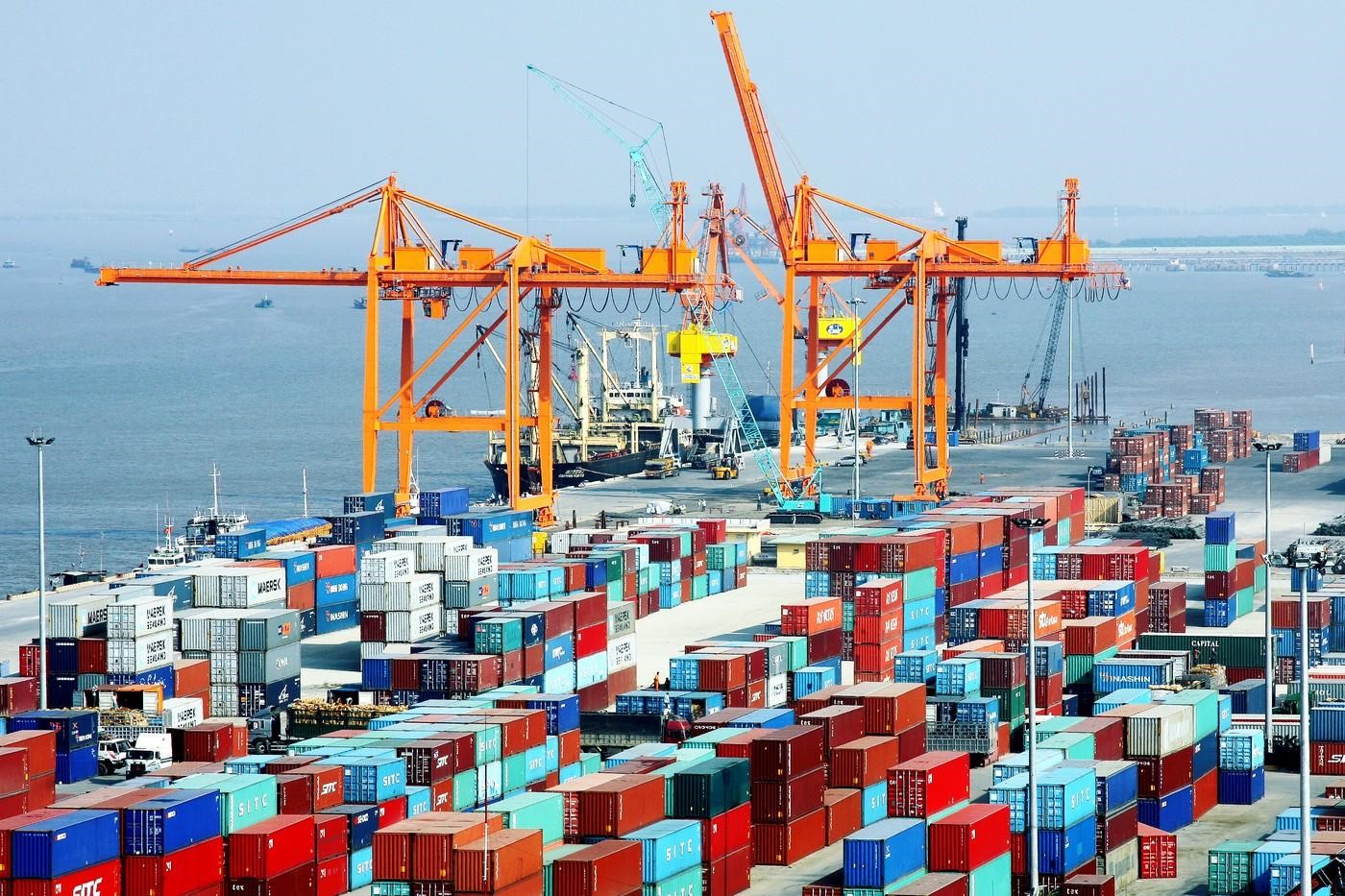
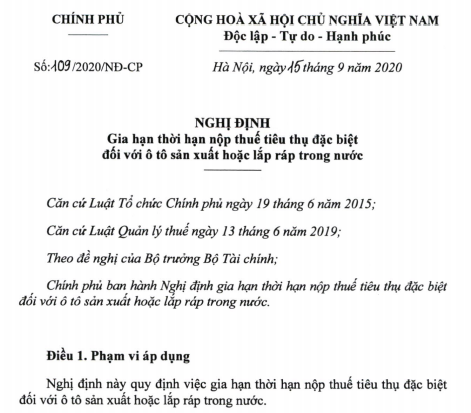

.Medium.png)
.Medium.png)
.Medium.png)
.Medium.png)
